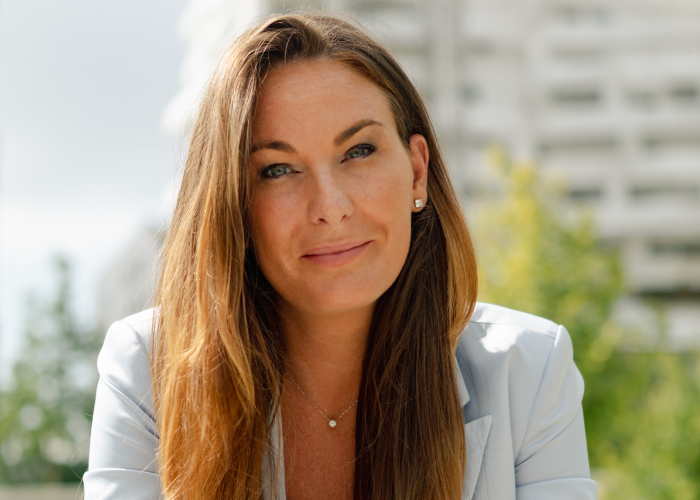Dr. Marine Hadengue, Executive Director at Higher Education for Good Foundation and Director of Youth Talks went into details with Campaign about the results behind the Youth Talks survey.
What are some key insights from the Youth Talks survey, and how do these perspectives differ across regions and cultures?
Thanks to the use of open-ended questions, the Youth Talks Consultation drew out what is really on the minds of young people, showing that there is no single “voice of youth” but rather a diverse spectrum of beliefs and ideas.
Key findings include an emphasis on values and virtues in education, challenging educators to reshape curricula.
Notably, a significant divide exists between Western and non-Western youth, with Western concerns focused on material preoccupations, while others fear unmet dreams.
Despite differences, a common desire for global peace emerged, reflecting a shared vision for a harmonious future.
The survey also revealed disparities in willingness to sacrifice for societal progress, with resistance observed across regions.
What challenges and opportunities did you face in distilling data from 45,000 global participants into actionable insights, given the diverse perspectives?
Youth Talks prioritises scientific precision, guided by a committee of research experts. Our methodology, centred on open-ended questions and advanced AI technology, handles extensive data.
As an international consultation, ensuring inclusivity was a challenge. We offered the consultation in 6 languages and diverse expression forms. Ambassadors bridged the digital divide, reaching communities for responses.
Distilling diverse data posed challenges and opportunities, requiring advanced AI tools. The insights influence decision-making from educational institutions to governmental policies.
Supported by nearly 60 partners, including PRME and the Club of Rome, our project aims to produce actionable proposals for governments and international institutions to amplify youth voices.
How can the identified gap in concerns between Western and global youth be used to promote a more inclusive and globally aware approach to addressing their needs and aspirations?
Youth Talks unveiled a significant divide between Western and non-Western youth. Western participants prioritise material concerns, while others fear unfulfilled dreams.
Financial worries dominate Western youth, with 25 per cent unwilling to sacrifice material comforts for social progress, compared to under 5 per cent elsewhere.
Non-Western youth are more concerned about giving up ambitions, identity, or family. This data guides efforts to bridge gaps, shape global policies, and highlights the need for a “glocal” approach, tailoring solutions to local contexts.
Empowering local organisations is essential for effective and resonant initiatives.
How do the emphasised values in education impact both educational programs and broader societal changes as envisioned by Youth Talks?
Traditional platforms for imparting human values, like family, community, and religion, have diminished, leaving youth disoriented.
Social networks failed to address the need for belonging, resulting in increased isolation. COVID-19 amplified these feelings, disrupting affiliations.
Despite post-COVID funds for youth support, the nexus between education and isolation remains inadequately addressed.
Restructuring higher education is pivotal, embedding humanistic principles in its core. This transformative process goes beyond adding modules, making values the central guiding force in all educational methods.
The goal is a profound overhaul, nurturing personal growth, upholding human dignity, and fostering collective well-being.
These crises prompt a reconsideration of global structures. Economic dominance hinders effective organisation, requiring infusion of humanistic management principles prioritising human dignity within essential management systems.
How do the perspectives of young people from MENA differ? What unique challenges arise in including their voices into the global conversation on actionable societal change?
MENA youth prioritise personal success over happiness, driven by a strong focus on self-development. They highlight the “paradox of individualism” and stress collective self-improvement, addressing moral flaws.
The region’s youth express concerns about the educational system, political issues, discrimination, and inequalities, seeking an improved world and personal growth.
Unlike Western counterparts, MENA youth emphasise preserving their identities, beliefs, and personal values.
A quarter strongly commits to moral principles, showcasing the profound significance of these values in their lives, notably diverging from global trends.
Their proactive stance presents opportunities for global attention and local transformations, urging a reassessment of education, political structures, and active involvement.
How do you envision education institutions incorporating insights from Youth Talks into curricula to shape future generations, as indicated by survey findings?
The Higher Education for Good Foundation (HE4G) addresses the gap in higher education to prepare youth for contemporary challenges such as inequalities, climate change, and AI.
Through initiatives like Youth Talks, it shapes educational programs by integrating insights and aspirations of young people.
HE4G collaborates with partners to create innovative, glocal programs that blend tradition and modernity.
Instead of imposing pre-designed curricula, it guides institutions to redesign their own, fostering a collaborative and adaptive approach.
The foundation, with 60 global partners, establishes a center of expertise for consolidating knowledge and ongoing educational transformations.










